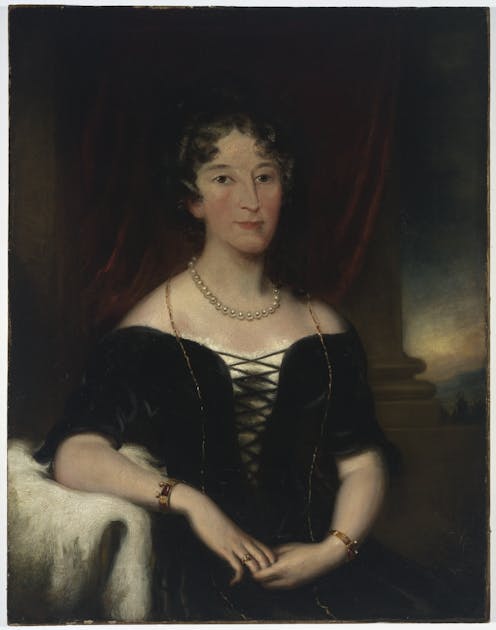after fictionalising Elizabeth Macarthur's life, Kate Grenville edits her letters
- Written by Kerrie Davies, Lecturer, School of the Arts & Media, UNSW Sydney

Do not believe too quickly!
This warning prologue begins Kate Grenville’s novel A Room Made of Leaves[1] (2021), a purported long-lost secret memoir by Elizabeth Macarthur that Grenville “found” hidden in a roof cavity.
The award-winning novel reinvented Macarthur, from the dutiful colonial wife of John Macarthur to a passionate, intelligent and empathetic queen of sheep.
Review: Elizabeth Macarthur’s Letters – edited by Kate Grenville (Text Publishing)

















